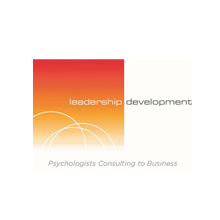by Kenneth Nowack, Ph.D., Chief Research Officer, Envisia Learning, Inc., www.envisialearning.com
How Much Sleep Do You Get?
On average, how much sleep do you typically get on work nights?
a) Less than 4 hours
b) 4 to 6 hours
c) 6 to 8 hours
d) More than 8 hours
Across an 85-year lifespan, an individual may sleep nearly 250,000 hours or more than 10,000 full days. Our research reveals significant sleep impairment in working adults: in a random sample of 1,326 workers, 35.7 per cent said they ‘often’ or ‘always’ receive less sleep than required because of staying up too late or getting up too early.
Almost 22 per cent reported being tired during the day because of poor-quality sleep (either falling asleep took too long or they are unable to stay asleep). Finally, slightly more than 8 per cent reported missing an entire night or large proportion of sleep in the past month because of work or play activities.
Sleep and Performance
Research from Matthew Walker and colleagues at UC Berkeley using MRI technology helps explain exactly why sleep deprived employees are often seen as moody, impatient and irritable. In his study, half of the 26 participants were kept awake for 35 hours straight and the other half were allowed a normal night’s sleep. All of the subjects were hooked up to an MRI and shown a number of images while the researchers monitored what happened in their brains as each image were shown.
The sleep-deprived subjects showed significant activity in the amygdala (the section of the brain that puts the body on alert to protect itself and influences memory and emotions) as well as slowed activity in the ventrolateral prefrontal cortex (which influences logical reasoning and willpower). On the other hand, subjects who got a full night of sleep showed normal brain activity. It appears that the ability to manage emotions and curb self-control is significantly compromised directly due to sleep loss.
Two other studies, also at UC Berkeley, support the notion that lack of sleep can contribute to making you less emotionally intelligent. In the first, researchers took 37 healthy participants (21 women) and randomly assigned into a sleep control or sleep deprivation group where they were asked to recognize the intensity of human facial emotions (an important aspect of emotional intelligence).
Participants who were sleep deprived had significant blunting in the recognition of angry and happy affective emotions and these differences were most pronounced in female participants. The good news was that the deficit in ability to accurately discern the correct identification of emotional expressions by others was completely restored following one night of recovery sleep.
In the second study by Andrea Goldstein-Piekarski and colleagues, 18 healthy young adults viewed 70 facial expressions that ranged from friendly to threatening, once after a full night of sleep and once after 24 hours of being awake. Researchers scanned participants’ brains using functional magnetic imagery (fMRI) and also measured their heart rate variability.
Brain scans confirmed that the sleep deprived participants were unable to accurately distinguish between friendly and threating faces. The inability to recognize and react to emotional expressions of others is important in an important facet of emotional and social competence that appears to be highly related to quality and quantity of sleep we get each night.
Several studies, including one of our own, suggest that lack of sleep can bring out the worst in bosses, turning ‘lovable stars’ into ‘competent jerks’. A study by Jane Gaultney, professor of psychology at the University of North Carolina, explored weekend to weekday sleep differences in 379 business leaders, finding that leaders who had the biggest change in weekend to weeknight sleep quantity received significantly lower evaluations on their leadership effectiveness from colleagues and peers.
Another study by Christopher Barnes, associate professor at the University of Washington, and colleagues found that daily sleep quality – not quantity – directly influenced leaders’ self-control. Those who were sleep deprived were rated as significantly more abusive and toxic in interpersonal interactions.
Lack of Sleep and the Emotional Intelligence of Leaders
Several studies, including one of our own, suggest that lack of sleep can bring out the worst in bosses converting “lovable stars” to competent jerks.” Gallup’s 2015 “State Of The American Manager: Analytics and Advice For Leaders” suggested that only 1 of 10 managers have the right “stuff” to lead effectively so any evidence that sleep contributes to bad boss behavior is not going to be good news.
Our own research published in the journal Consulting Psychology: Practice and Researchwith 104 senior leaders found that lack of sleep was significantly correlated with lower scores on a validated measure of emotional intelligence. Peers and colleagues saw the sleep-deprived leaders as demonstrating significantly less empathy, warmth and interpersonal effectiveness than those leaders reporting little or no sleep loss over a three-month period. This is the first study to show a relationship between lack of sleep in leaders and perceived emotional intelligence by those who report to them.
What Companies Can Do About Sleep Issues of Employees
Employers should consider making a number of interventions to help improve employee well-being and help staff cope with todays wired and ‘always on’ culture, which contributes to lack of sleep and serious fatigue deficits on the job. Each of these actions may have a tremendous return on investment in terms of both financial and performance outcomes:
- Include sleep education/information within company-sponsored employee wellness/health promotion programmes (e.g., sleep hygiene and disorders)
- Provide stress management programmes (e.g., mindfulness meditation, yoga) to enhance health and wellbeing
- Include a sleep diagnostic in company-sponsored health risk appraisals
- Revisit/revise policies around scheduling (e.g., rotating shift work schedules) to minimize sleepiness and fatigue
- Revise/revisit policies and expectations around the number of after-hours/holiday time emails and employee communications
- Offer quiet spaces and napping space for employees to catch up on sleep during their time at the office
- Include presenteeism, job stress and workload metrics in annual engagement surveys, and explore meaningful interventions to address current issues and concerns
- Review and revise travel policies to encourage flexibility in schedules to maximize sleep and alertness (e.g., start times for meetings and ‘red eye’ flights)
- Reward supervisors for fostering and reinforcing a recovery culture (e.g., creating policies to limit communication after hours)
Note
Click the link below to access an electronic copy of the original research article in APA’s psycnet database. (Access requires a subscription, or you can purchase individual articles.)
Consulting Psychology Journal: Practice and Research publishes evidence-based articles that advance the body of professional knowledge and expertise for providing psychologically-based services to improve organizations and the people who work in them. It is a unique peer-reviewed journal; CPJ articles meet scientific standards for rigor and support, but are also readable, practical, and actionable.

















